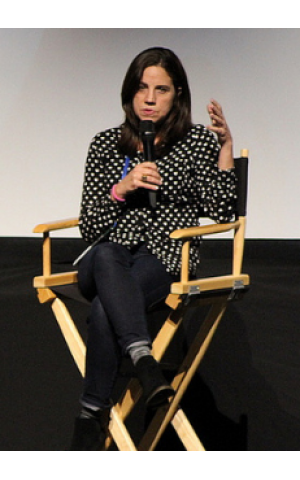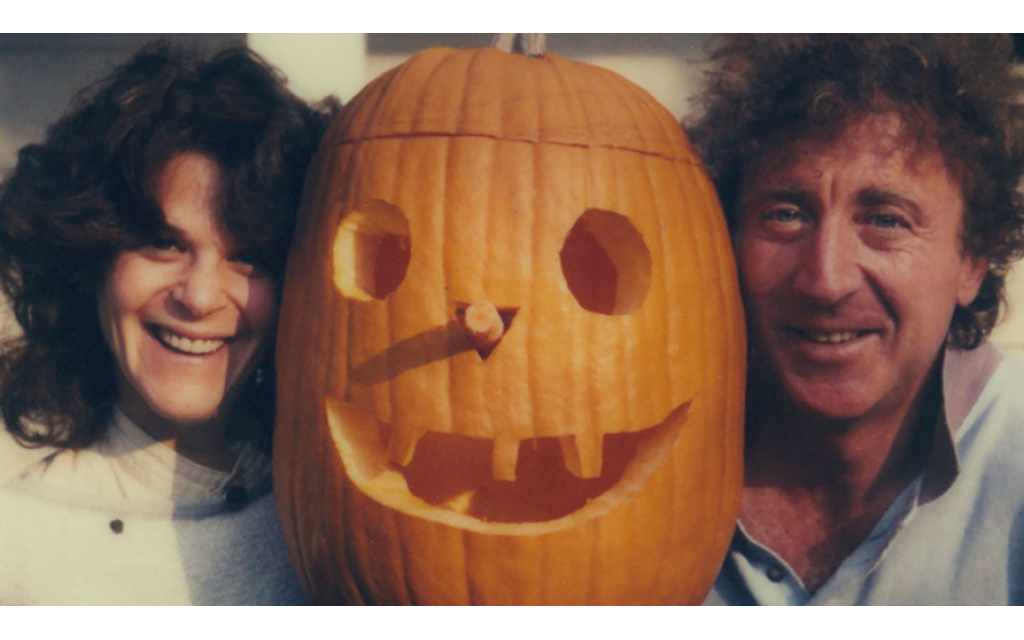‘Love, Gilda’ Looks at Love in All the Right Places
Lisa D’Apolito’s documentary film, which is being screened at this year’s Atlanta Jewish Film Festival, is a loving tribute to the spirit of Gilda Radner.
Lisa D’Apolito’s documentary film, “Love Gilda,” which is being screened at this year’s Atlanta Jewish Film Festival, is a loving tribute to the spirit of Gilda Radner, the comedian who died of ovarian cancer nearly 30 years ago. Radner grew up in a wealthy Jewish family in Detroit, where she had to contend with the death of her father, whom she adored, when she was just 14.
She started using humor as a way to deal with the pain of her loss and to fend off the taunts of other teens over the weight problem that she experienced during much of her early life.
I asked D’Apolito whether there wasn’t something uniquely Jewish about the way [Radner] used humor to cope with her emotional pain.

D’Apolito: Besides coping, I think it’s like it’s just a unique way of looking at life. Like finding the humor in what’s going on. I think that that’s sort of Jewish also. So many of those I met in her family are funny too – her brother and her cousins. She was very lucky. She grew up in an environment that cherished humor.
AJT: This film has had a great reception. It opened at New York City’s Tribeca Film Festival. Why do you think audiences love this movie so much?
D’Apolito: Well I think they love Gilda. She’s such a beautiful human being. But she’s also so much like many people. We have our insecurities. We have our family difficulties. We have relationship difficulties, but despite that, I think the essence of Gilda is that she was looking to love and be loved. And I think everyone feels that way. They are looking to be loved and love other people.
AJT: During the last seven years of her life she was married to Gene Wilder. They seemed destined to be with one another. The Yiddish word for it is beshert. Did you have that sense that Gene Wilder and Gilda were destined to be together?
D’Apolito: Yes, I think so. He was everything, every single thing that she ever wanted in a man. He was Jewish. He was handsome and attractive and successful and funny. She just adored him. He had been married twice before and he once said that he wasn’t looking for love. And then he found Gilda.
Perhaps because of the way she grew up, she never felt pretty. Gene made her feel beautiful. He loved her for who she was.

AJT: Were you able to meet with him before he died a couple of years ago?
D’Apolito: From the time I started the film I wanted to talk to Gene, and I didn’t hear anything back for a couple of years. And then I was in Los Angeles working on a commercial and out of the blue I got a call saying he wanted to see me, and I spent the day with him in the house that he and Gilda had shared.
Even though he was very sick and near the end of his life, he had a beautiful persona. He was gentle and funny and charming. And then at the end of the day we just sat together in his garden without saying anything for maybe a half hour. We just sat there together, and it was just a wonderful experience.
AJT: Gilda left behind a wonderful legacy that you bring out so well in the film. You show how we can be in the deepest and darkest time in our life and still bring joy to others.
D’Apolito: That’s what I found inspirational from the beginning. That was the pull for me to make this film. I watched her on the Garry Shandling show talk about cancer when people didn’t talk about cancer. She really wanted cancer not to be a dirty word. She wanted people to talk about it. And that was really important for her because she might have survived if she had been diagnosed earlier.
The doctors didn’t believe her. They thought she was a hypochondriac. They thought she had Epstein-Barr disease. You know there hasn’t been much progress in the detection of ovarian cancer in the 30 years since her death, which is awful. So, if it had been detected earlier she could still be here today. As it was, she was diagnosed with stage 4 cancer and really only given six months to live. She lived for 2 1/2 years. She wrote her book in that period. She kind of beat the odds in some sense. That period had a purpose for her.
AJT: What are you going to do with all the material you have unearthed about her?
D’Apolito: There’s a lot. There’s a screenplay that she wrote that we’re working on. There are short stories and writings. There are something like 35 boxes of her material that are just sitting in my storage unit. Gilda left so much behind. The movie is just like a tip of the iceberg of what should be out there for the public.
“Love, Gilda” has two final screenings at the AJFF, on Feb. 19 and Feb. 20. For more information, go to www.ajff.org.



comments